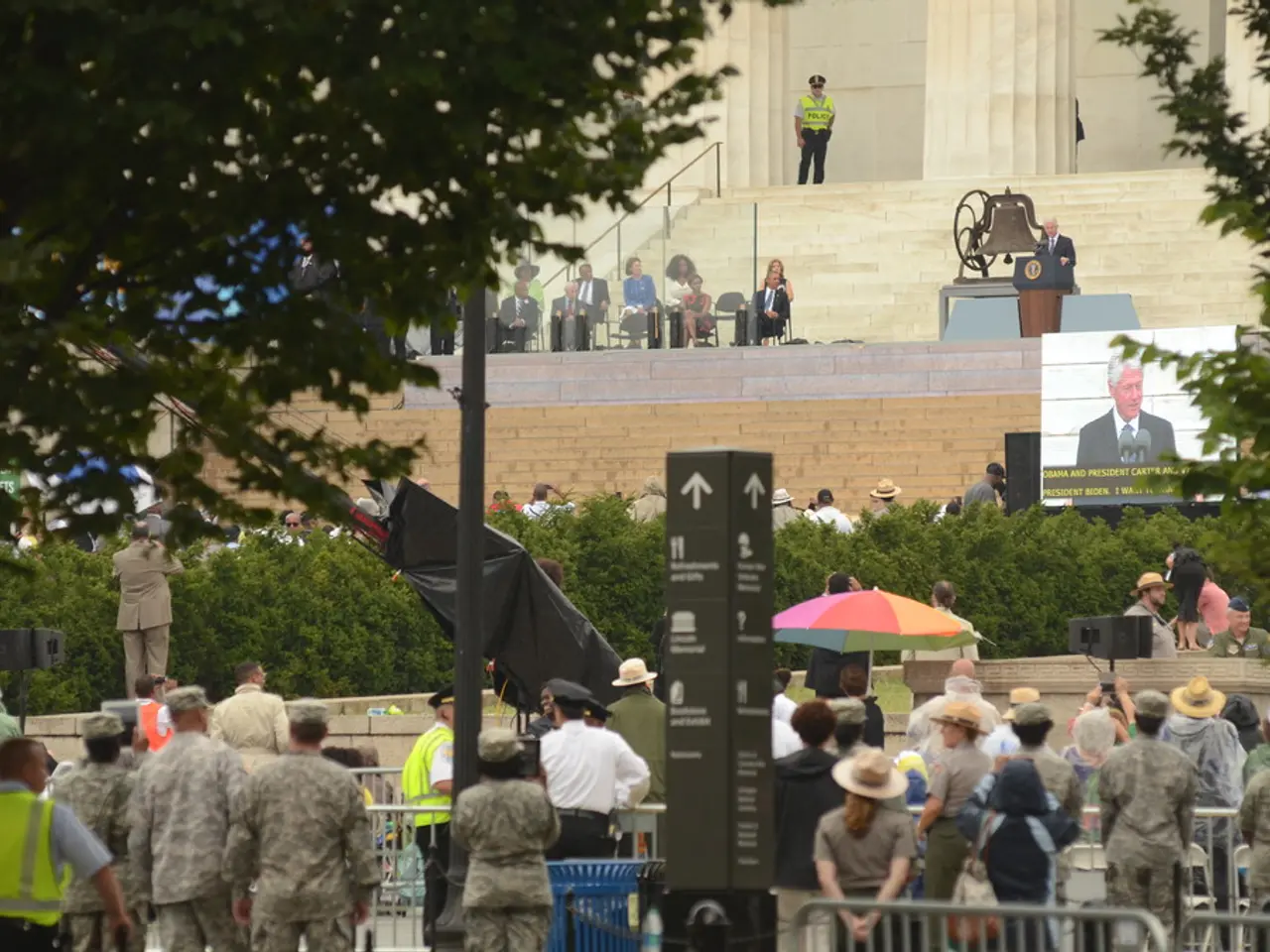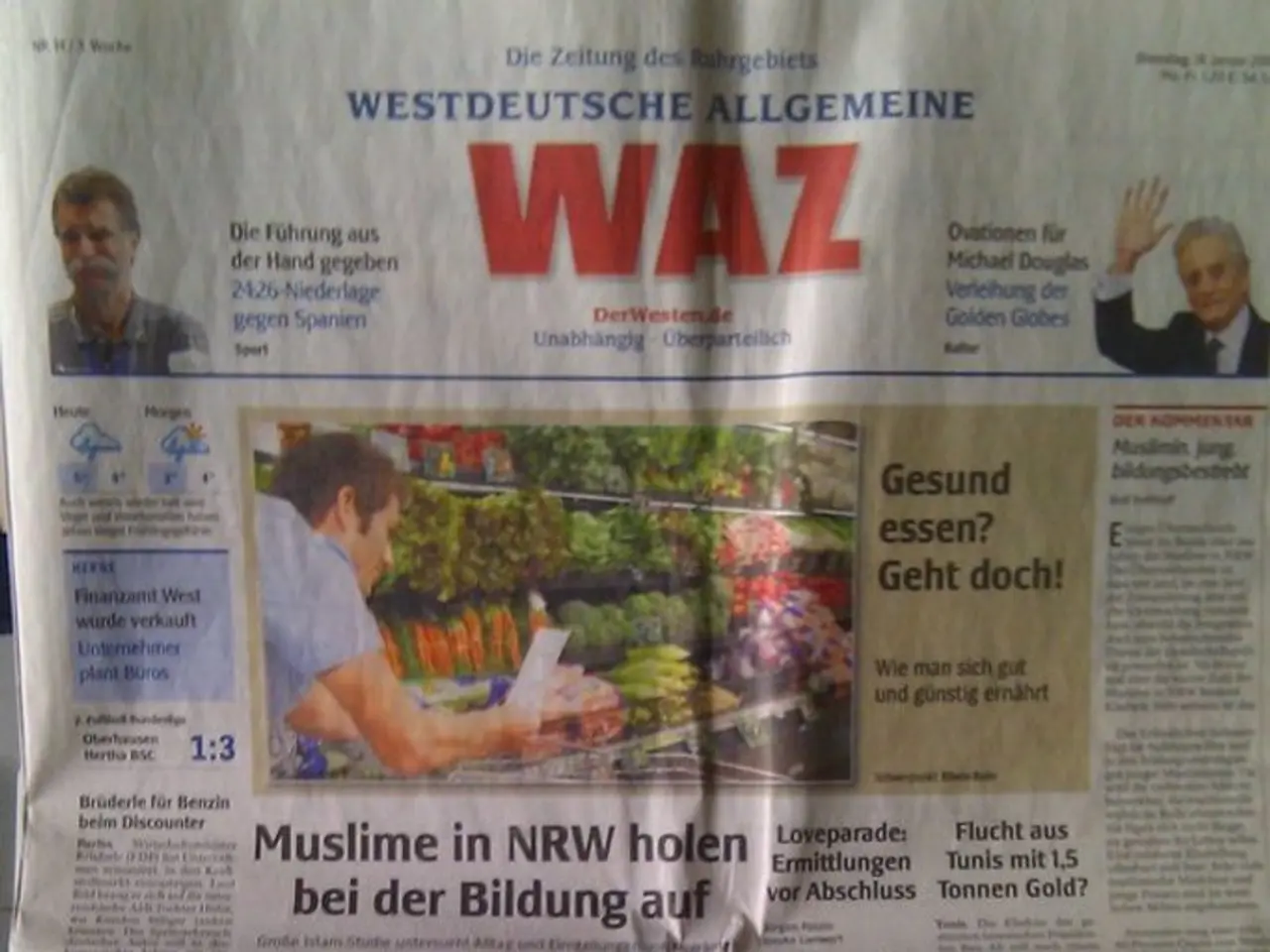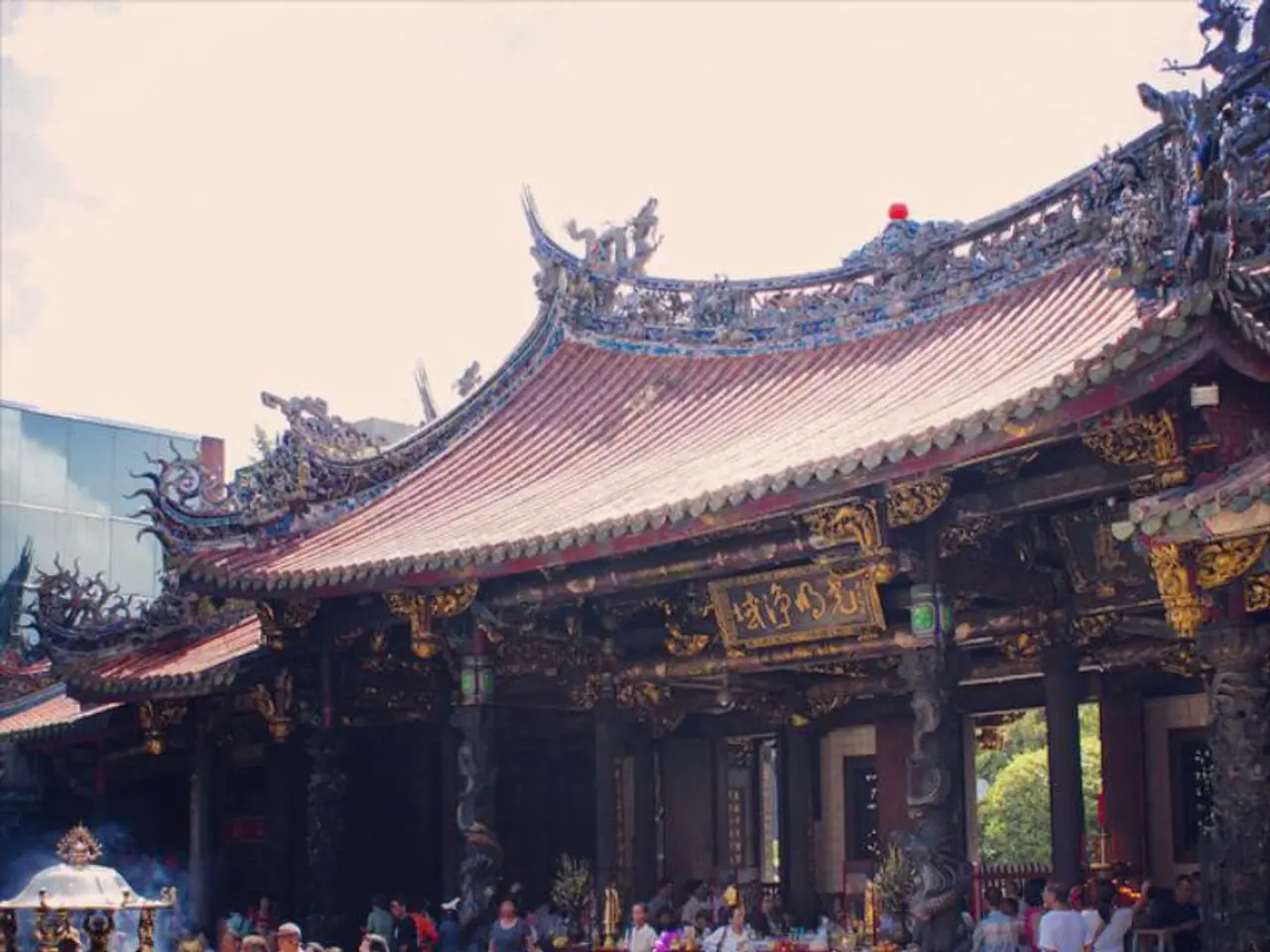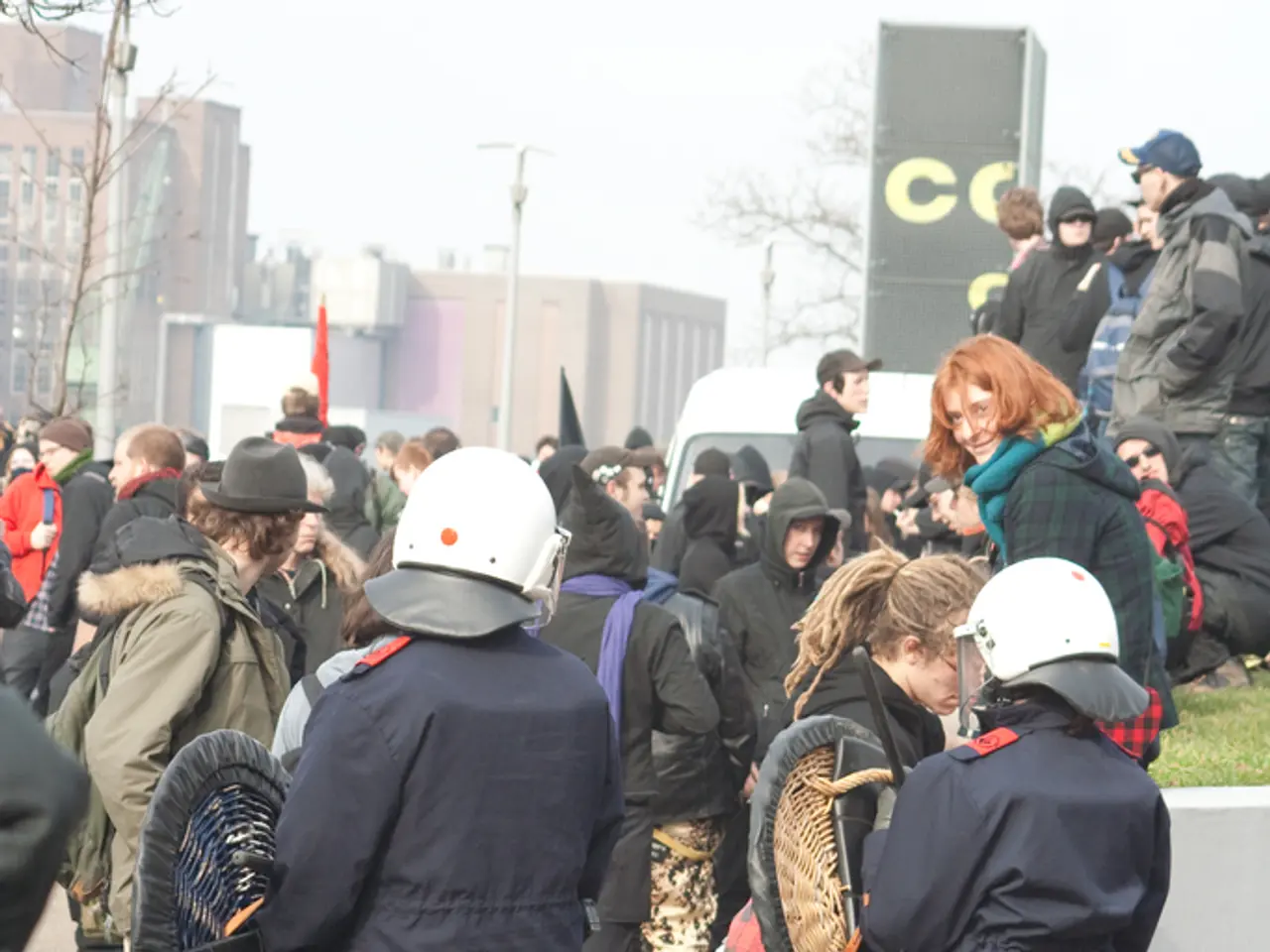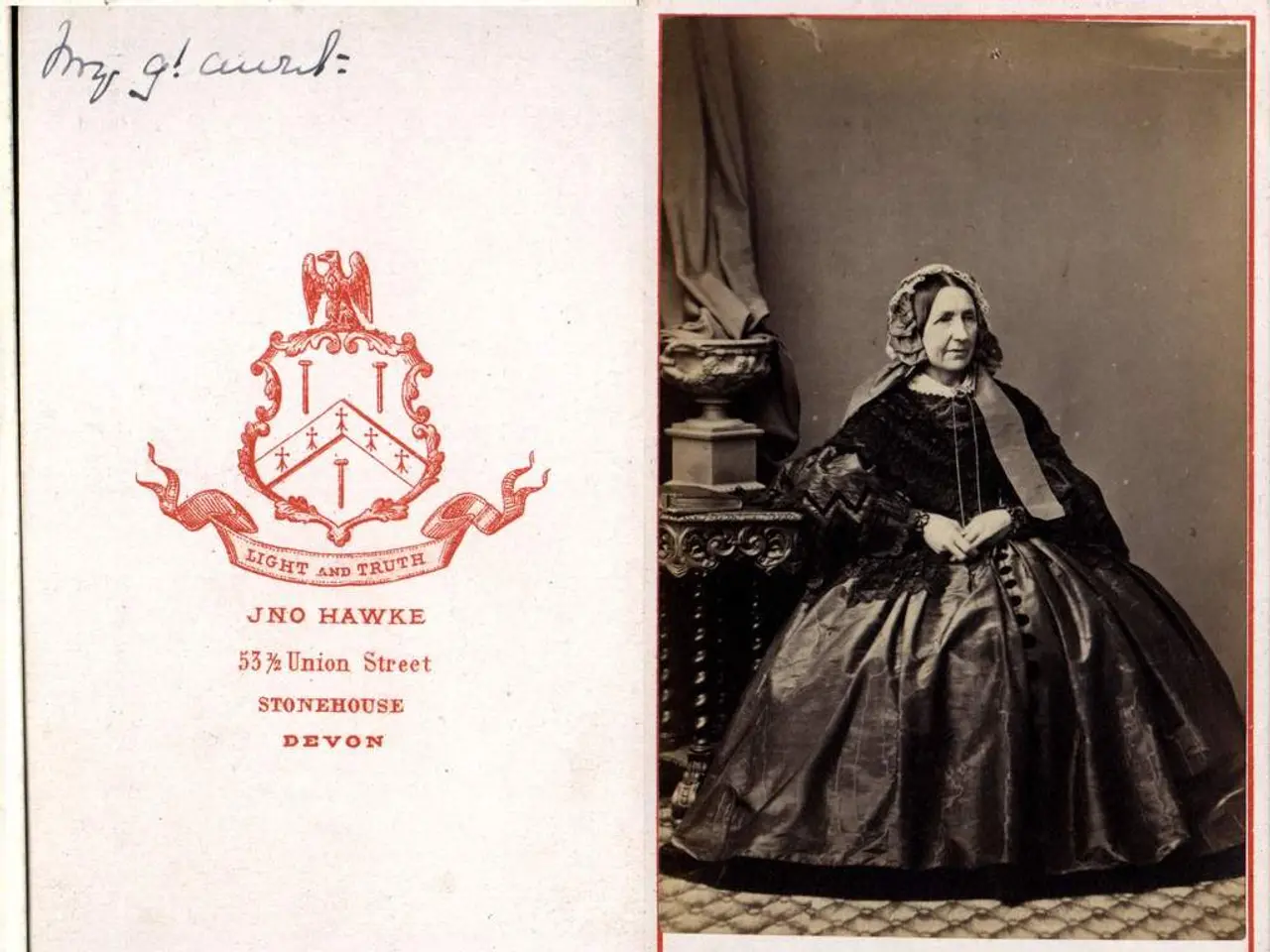Cambodia's Prime Minister Hun Sen leading in territorial dispute with Thailand along the border.
Former Cambodian Prime Minister Hun Sen, currently the president of the Cambodian Senate, has taken an outsized role in the decades-long border conflict with Thailand. The undemarcated sections of their 817 km (508 miles) land border have been a source of disputes, with the recent escalation of violence causing concern and amplifying Hun Sen's prominence.
The conflict began in May 2025, following the killing of a Cambodian soldier during a skirmish. In the ensuing months, Hun Sen played an active role, engaging in negotiations, visiting contested areas, and issuing strong statements against Thai aggression while positioning himself as Cambodia's chief defender [1][3].
Hun Sen's public rhetoric and actions during the conflict have revived his political stature amid this long-standing territorial dispute. He has been seen in photographs with military officers, poring over detailed maps, and using a radio set, demonstrating his hands-on approach to the situation [1][2].
In one photograph, Hun Sen is seen in a video conference call with a dozen people, including several soldiers [1]. In another post, he shared a photo of himself in combat fatigues [1]. These actions have been met with an outpouring of support for the government on social media amid a wave of nationalism.
The Thai army accused the Cambodian government, led by Hun Sen, of being behind attacks during the conflict. However, a Cambodia-based diplomat stated that Hun Sen goes to great lengths to create the optics of being in charge during the conflict [1].
The border conflict has made Hun Sen's clout more apparent, with much of the newfound wealth in Cambodia being concentrated in the hands of the country's ruling elite [5]. Despite this, Hun Sen presided over an economic boom in Cambodia, with per capita income almost quadrupling from $240 to $1,000 in the decade from 1993 to 2013 [6].
In recent months, even domestic administrative policy decisions were being brought to Hun Sen for approval [7]. This demonstrates his sustained influence not just as a former prime minister but as a key power broker leveraging the border tensions to maintain relevance regionally and domestically [1][3].
In late June, Hun Sen openly rebuked Thai premier Paetongtarn Shinawatra in a rambling three-hour televised speech, attacking her father, former premier Thaksin Shinawatra [8]. This political crisis was further escalated when Hun Sen released the full audio of their conversation [9].
Hun Sen is a wily survivor of Cambodian politics, having defected from the Khmer Rouge and rising to become prime minister after Vietnam overthrew the regime [10]. Today, he continues to shape Cambodia's response to the escalating and deeply volatile Thai-Cambodian border conflict.
References:
- BBC News (2025). Hun Sen's role in the Thai-Cambodian border conflict. Retrieved from https://www.bbc.co.uk/news/world-asia-57465514
- The Guardian (2025). Cambodia-Thailand border conflict: Hun Sen's nationalist rhetoric. Retrieved from https://www.theguardian.com/world/2025/jul/20/cambodia-thailand-border-conflict-hun-sen-nationalist-rhetoric
- Reuters (2025). Hun Sen's leadership during the Thai-Cambodian border conflict. Retrieved from https://www.reuters.com/world/asia-pacific/hun-sens-leadership-during-thai-cambodian-border-conflict-2025-07-01/
- Al Jazeera (2025). The fragility of peace in the Thai-Cambodian border conflict. Retrieved from https://www.aljazeera.com/news/2025/8/1/the-fragility-of-peace-in-the-thai-cambodian-border-conflict
- The New York Times (2025). Wealth concentration in Cambodia under Hun Sen. Retrieved from https://www.nytimes.com/2025/06/25/world/asia/cambodia-wealth-concentration.html
- World Bank (2025). Economic growth in Cambodia under Hun Sen. Retrieved from https://www.worldbank.org/en/country/cambodia/publication/economic-growth-in-cambodia-under-hun-sen
- Phnom Penh Post (2025). Hun Sen's influence in Cambodia's domestic policy. Retrieved from https://www.phnompenhpost.com/national/hun-sens-influence-cambodias-domestic-policy
- The Diplomat (2025). Hun Sen's attack on Thai premier Paetongtarn Shinawatra. Retrieved from https://thediplomat.com/2025/06/hun-sens-attack-on-thai-premier-paetongtarn-shinawatra/
- The Nation (2025). The political crisis triggered by Hun Sen's audio release. Retrieved from https://www.nationthailand.com/news/30401025
- The Washington Post (2025). Hun Sen's rise from the Khmer Rouge. Retrieved from https://www.washingtonpost.com/world/asia_pacific/hun-sens-rise-from-the-khmer-rouge/2025/07/01/7597a5c6-e43c-11e6-8739-d380a9b5d83d_story.html
- The escalating Thai-Cambodian border conflict, rooted in decades-long disputes over an 817 km land border, has highlighted the prominent role of Cambodian politics and economy, with former Prime Minister Hun Sen taking a decisive stance against Thai aggression.
- The recent escalation of violence and Hun Sen's public rhetoric and actions during the conflict have not only catapulted him to greater political stature but also energized nationalist sentiments among the Cambodian population, particularly on social media.
- The border conflict has also sparked concerns about the fragile state of peace and the potential for wider regional conflicts, casting a shadow over both the Cambodian and Thai economies, which have struggled with war-and-conflicts, general-news, and volatile political environments.
- In the face of the border conflict, despite the concentration of much of Cambodia's newfound wealth in the hands of the ruling elite, Hun Sen has presided over an economic boom, quadrupling the per capita income from $240 to $1,000 between 1993 and 2013, a testament to his enduring influence in the Cambodian economy.
